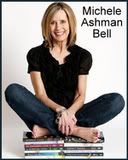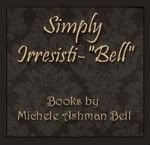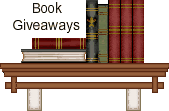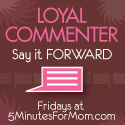
David P. Vandagriff joined the Church in Chicago when he was twenty-four. The first Latter-day Saint he had ever met, G.G. Vandagriff, would become his wife. David received his undergraduate degree from Northwestern University and graduated with honors from Pepperdine University School of Law. He has practiced law in California and Missouri and has worked as an executive in several technology companies. His wife G.G. is an accomplished author and is a featured columnist on Meridian Magazine. David and G.G. have three children and one grandson.
David has served as a bishop on two occasions, as a member of a Stake Presidency and three high councils, and as Stake Young Men’s President and Stake Mission President. He is currently a Gospel Doctrine teacher in his ward and an ordinance worker in the Provo Utah Temple.
 I Need Thee Every HourThe Atonement of Jesus Christ is the most important event that ever happened or ever will occur at any time or in any place in our universe. It is a gift not only for our last breath and the last day of our lives, but it is also for every day of our lives and every breath of our lives. For it is during the hours of our everyday lives that we work out our salvation, usually unobserved by others, sometimes feeling alone, and often feeling opposed.
I Need Thee Every HourThe Atonement of Jesus Christ is the most important event that ever happened or ever will occur at any time or in any place in our universe. It is a gift not only for our last breath and the last day of our lives, but it is also for every day of our lives and every breath of our lives. For it is during the hours of our everyday lives that we work out our salvation, usually unobserved by others, sometimes feeling alone, and often feeling opposed.
Though commonly mentioned in the Church, the Atonement of Christ is frequently misunderstood by many of the Saints. It is often viewed as a tool that is only to be employed when dramatic sins are committed. However, the Atonement is something that should be a part of every facet of our lives - in both joyful periods and challenging times.
Drawing on his personal experience as a husband and bishop, David Vandagriff has written I Need Thee Every Hour to help readers see how the Atonement can encourage us and improve our lives as we realize the enormity of the Savior's sacrifice and how far it extends. Using real-life stories, each individual chapter discusses how the Atonement relates to different areas of daily life including - death, prosperity, trials, service, and undeserved suffering - to show how the Atonement is the foundation of all hope and the proof of a loving God.My review:
There aren’t many pursuits in life that are as valuable to an individual as the pursuit of gaining a deeper understanding and personal testimony of the Atonement. Nothing has more importance to our salvation than the atoning sacrifice of our Savior. This doctrine is often studied and taught in Sunday School lessons and over the pulpit, but like Brother Vandagriff points out is often viewed as "a tool that is only to be employed when dramatic sins are committed."
I Need Thee Every Hour is written to help us understand that the Atonement is something that should be part of “every facet of our lives—in joyful periods and challenging times."
Beautifully and powerfully written,
I Need Thee Every Hour not only gives remarkable insight and instruction on why we need the power of the Atonement in our lives but goes a step further and tells us
how we can apply it in our lives every day.
Through personal stories from his own life and from his service as a singles ward Bishop and other leadership callings, Brother Vandagriff shares lessons learned about various aspects of the Atonement that teach us how we can better understand our Savior’s great sacrifice and love for us. While Bishop of a singles ward he was inspired to ask that every talk and every lesson be explicitly connected to the Atonement of Christ. He noticed that this principle--the Atonement--had a transforming effect on the members of that ward and their bishop. He also realized that if the Atonement was important on Sunday, it was equally so on every other day of the week.
When we gain a deeper understanding, we naturally want to serve our Savior and our fellow man. Brother Vandagriff writes, "What profound spiritual rewards await us as we serve others: 'One of the ways that God is here is because I am here.' We are the hands of God when we share the gospel with those who have not received it... We can have the privilege of playing a role in bringing the healing and strengthening blessings of the Atonement into the lives of those whose hearts and lives can be rescued only by their Savior."
I appreciated throughout the book how Brother Vandagriff picked a variety of topics to help illustrate his points about finding greater understanding in dealing with challenges in life. Readers who are struggling with the death of a loved one, making sense of suffering, chastity issues, or a myriad of other struggles will feel comforted by the book’s message and be encouraged to apply the healing balm of the Atonement in their lives. Brother Vandagriff also covers topics such as; the charge to avoid pride and the pursuit of wealth, prayer, and the valuable message of enduring to the end. And the greatest message of all is that understanding and applying the Atonement in our life will help strengthen us during trials and draw us closer to our Savior and allow his Spirit to dwell with us continually. Also included is a very personal account of his wife’s, G.G., twenty-five year battle with depression and how she was healed through faith, the power of the priesthood, and the Atonement. Their story of enduring this battle together is inspiring and provides hope for others in the same situation. This is a book I intend to share with others and plan to read often.
I had the pleasure of interviewing David. Here's my interview:
M.B.: How many books have your written? How many do you have in print?
David: I have been the author or co-author of two books for LDS audiences, I Need Thee Every Hour – The Atonement in Everyday Life and Deliverance from Depression: Finding Hope and Healing Through the Atonement of Christ, which I co-authored with my wife, G.G., and my son, Greg. I also contributed to several books for attorneys while I was a practicing attorney prior to 1996.
M.B.: What was the pathway like for you to get this book published?
David: Fortunately, G.G. and I developed a good relationship with Covenant Communications during the publication and promotion of Deliverance from Depression, so they were the logical organization to approach with I Need Thee Every Hour.
Even so, it took several months for Covenant to make the decision to publish the book. As with many publishing decisions, the book had champions and skeptics inside the publisher. I was asked to make some suggestions for marketing and positioning statements that would insure that the book would stand out in a crowded marketplace.
If there was ever a time when an author simply dropped off a manuscript with a publisher and waited for magic to happen, those days are over. Particularly during our current economic times, a publisher has to believe that there is a high probability that it will be able to make a reasonable profit from publishing a book.
M.B.: Were you ever discouraged along the way? If so, how did you deal with it?
David: I have the great advantage of being married to an active and successful author, G.G. Vandagriff. Like 99.99% of authors, sometimes her manuscripts have been rejected and that can be very discouraging. However, one of G.G.'s dominant character traits is that she never gives up. If she didn't have this attitude, I doubt she would have ever been published.
The other thing that helped me is that this is a book about the Atonement, a subject of the deepest spiritual significance. As I wrote it, I worked hard to understand the Atonement better and that can only be done with the help of the Spirit. President Eyring once said that whenever you feel the Spirit, you know the Atonement is working in your life. Whenever the Holy Ghost comes to you, he cleanses and uplifts you, leaving you better than you were before his visit.
The process of thinking and writing about my own experiences in the book helped me to come to a deeper understanding of their significance and a greater appreciation of how often the Lord had provided assistance to me over many years. Even if no one but me ever read what I wrote about the Atonement, I was a better person for doing so. After all the times that I had read and rewritten the manuscript, when I was reviewing the galleys for typographical errors, tears often came to my eyes as I was reminded over and over again of how kind the Lord has been to me and my family.
M.B.: What is your writing schedule like?
David: The best time for me to write is first thing in the morning. Everything is clearer then. As I progress further into the day, all sorts of little and large things start claiming pieces of my mind. Early in the morning, my mind is all my own.
M.B.: Where did your idea for this book come from? How do you know the idea is
good enough to write a book about it?
David: This book began when I was called as bishop of the BYU 28th Ward. When the stake president issued my call, he said that he wanted me to make certain that every talk and every lesson in the ward was explicitly connected to the Atonement of Christ.
He shared a quote from then-Elder Boyd K. Packer, "[The Atonement of Christ] is the very root of Christian doctrine. You may know much about the gospel as it branches out from there, but if you only know the branches and those branches do not touch that root, if they have been cut free from that truth, there will be no life nor substance nor redemption in them."
I accepted this as both a personal assignment as well as one that I would give to teachers and speakers in the ward. If I was counseling someone who was dealing with a chastity problem, I needed to know how the Atonement related to chastity. Speaking to a man and woman who were preparing for marriage, I worked to explain how the Atonement applied to temple ordinances and married life.
As to the question as to whether this idea is good enough to write a book about, Elder Bruce R. McConkie wrote, "Now the greatest and most important single thing there is in all eternity—the thing that transcends all others since the time of the creation of man and of the worlds—is the fact of the atoning sacrifice of Christ the Lord." I cannot conceive of a better idea for a book.
M.B.: I noticed that you put a great deal of yourself in this book, personal stories and experiences. Why did you feel it was important to share what was so close to your heart?
David: While no one but the Lord can compare crosses, some of the experiences I have had have been very difficult for me. In the midst of those difficulties, I had no choice but to turn to the Savior. It would have been better if I had done so without such trials and I know a few people who seem to have that gift. For me, however, in retrospect, the intensity of the trials forged a powerful bond between the Lord and myself that might not have happened in any other way. I usually didn't understand what was happening in the midst of the trial, but the Lord was working on me.
The statement of one of the handcart pioneers who experienced such incredible suffering on the winter plains of Wyoming has always resonated with me, " Was I sorry that I chose to come by handcart? No. Neither then nor any minute of my life since. The price we paid to become acquainted with God was a privilege to pay, and I am thankful that I was privileged to come in the Martin Handcart Company."
M.B.: What would you like to see happen as a result of this book? Do you plan to write another one along this topic?
David: I hope my book helps people to understand what their Savior has truly done for them. I need to improve my understanding of the Atonement and think no one ever reaches the point in this life where they understand it completely. There are always more things to discover about how much our Redeemer loves and blesses us.
The more our understanding and appreciation grows, the more tightly we will hold onto Christ. If we hold Him tightly, He will hold us in return and carry us back to our heavenly home, regardless of what happens in our mortal lives.
I remember reading somewhere that one of the early leaders of the Church was asked what we would talk about through all eternity if we were privileged to enter the Celestial Kingdom. He responded that we would speak of the love the Lord had for us and all the ways in which He has blessed us and that we would never reach the end of such conversations.
As far as another book is concerned, there will always be more to write about the Atonement.
M.B.: What words of advice do you have for other writers who desire to
have their manuscripts become books in print?
David: I consider myself to be a beginning writer, so I may not be a fount of much wisdom for other beginning writers.
Given that caveat, it is always important for me to read the work of accomplished authors. Without implying anything about those brethren who are not mentioned, on spiritual topics, I find the writings and speeches of President Eyring, President Packer, Elder Holland, Elder Scott, Elder Bednar, Elder Hafen and the late Elder Neal A. Maxwell to be wonderfully instructive not only in the substance of their teaching, but also the manner in which they express their ideas. These brethren differ greatly from one another in their writing and speaking styles, but each displays a superb talent for articulating spiritual principles in a way that teaches, uplifts and inspires me.
M.B.: Did you work from an outline?
David: Not on this book. When I was writing legal briefs, I always used an outline, but each of the chapters of this book germinated either from a scripture or from a personal experience that had taught me something important.
M.B.: You have a lot of powerful quotes in this book. How did you do the research for them?
David: When I started talking about the Atonement with my student ward members, I started collecting quotes about the Atonement to use both in personal counseling as well as sacrament meeting talks. Once you become aware of how central the Atonement is to every aspect of the Gospel, the quotes just jump out at you.
Rich sources of quotes include the Church's website, the BYU and BYU-Idaho devotional websites, LDS Library - http://search.ldslibrary.com/ - a subscription site with lots of older Church books and books written by the General Authorities I mentioned earlier. Also, The Infinite Atonement by Tad R. Callister is a wonderful comprehensive work that Elder Callister took many years to write.
M.B.: Did you ever experience writer's block? If so, how did you deal with it?
David: I get writer's block all the time, but never had it with I Need Thee Every Hour. The biggest challenge was trying to figure out how to write about experiences that didn't lend themselves to words.
M.B.: Do you need absolute quiet to write? Do you listen to music when
you are writing?
David: I'm one of the quiet writers. I usually have to be able to hear how a sentence sounds with my inner ear. Sometimes instrumental music in another room is OK, but never music with lyrics.
M.B.: What kinds of inspiration do you use during your story creation periods?
David: Stories from the life of Christ, the great Atonement sermons of the Book of Mormon, General Conference talks and Devotionals. One of the great things about both General Conference talks and BYU and BYU-I devotionals is that you can get MP3 sound files. I really like to listen to the way the speakers sound. Elder Maxwell and Elder Holland are always wonderful to listen to.
I have an iPod full of these kinds of talks. Some of my best cardio workouts at the gym happen when I'm listening to the brethren talk about the Atonement. I sometimes wonder what people must think when they see tears in my eyes while I'm sweating on the elliptical machine.
M.B.: Who has made the greatest difference for you as a writer?
AUTHOR: For this book, in chronological order: Jacob, King Benjamin, Abinadi, Alma and Amulek. The Book of Mormon is the Atonement testament.
M.B.: Any final words you would like to share
David: Thanks for asking such great questions. I learned some things while I was thinking about how to respond to them.
The Atonement is real. It is the most important thing that exists in time and eternity. You have a Heavenly Father and a Savior who are passionate about saving each of their children, about giving them Eternal Life if they will accept it.
M.B.: Where can our readers go to find your books and order them?
David: Right this minute, Deseret Book's website www.deseretbook.com
is the only place that the book is listed. In the next week or two, it should be available in LDS bookstores (hopefully everywhere) and online at Seagull Book and Amazon.
My author website is www.davidvandagriff.com
I have a blog about the Atonement at www.atonementblog.com
I tweet new blog entries at atonementblog
.jpg)




.jpg)






































































-page-001.jpg)













